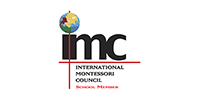Eco-Friendly Diwali Initiatives
As a student of Manchester International School, an IB continuum school that emphasizes holistic development and global perspectives, I recently participated in a debate on eco-friendly Diwali initiatives and their impact on lower-income communities.
This debate resonated deeply with me, as it aligns with the United Nations' Sustainable Development Goals (SDGs), particularly Goal 12: Responsible Consumption and Production, and Goal 10: Reduced Inequalities.
Before the debate, I was nervous. Researching both sides helped, but I worried about articulating my points convincingly. However, during the discussion, I gained valuable insights. I understood that environmental concerns and social justice are intertwined. Eco-friendly alternatives can be expensive, excluding marginalized communities. Moreover, education and awareness are crucial for sustainable change.
This debate taught me critical thinking, considering multiple perspectives, effective communication, conveying ideas clearly, empathy, and understanding opponents' viewpoints. Reflecting on it, I realized the importance of inclusive, affordable sustainability solutions, the need for ongoing conversations on environmental and social issues, and my growth as a critical thinker and communicator.
At Manchester International School, we strive to embed the IB learner profile traits, such as being principled, open-minded, and reflective. This debate experience has reinforced these values, encouraging me to become a responsible global citizen.
In conclusion, debating eco-friendly Diwali initiatives opened my eyes to the intricate relationships between environmentalism and social justice. I look forward to applying these lessons in future debates and conversations, contributing to a more sustainable and equitable world












